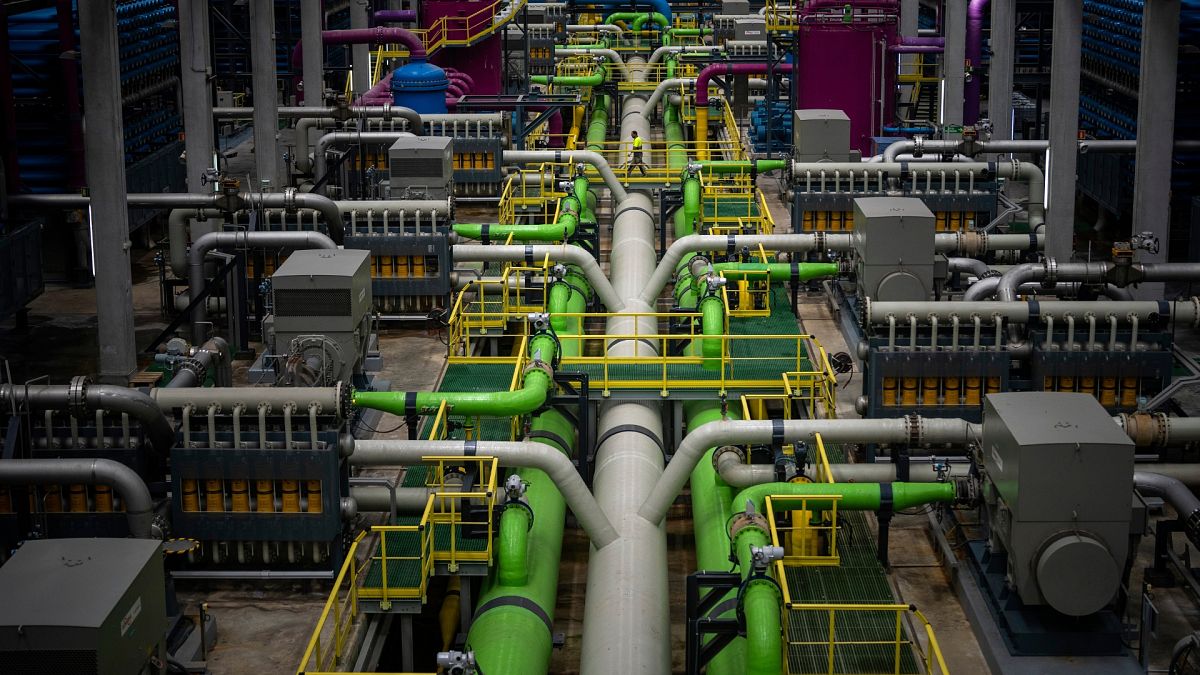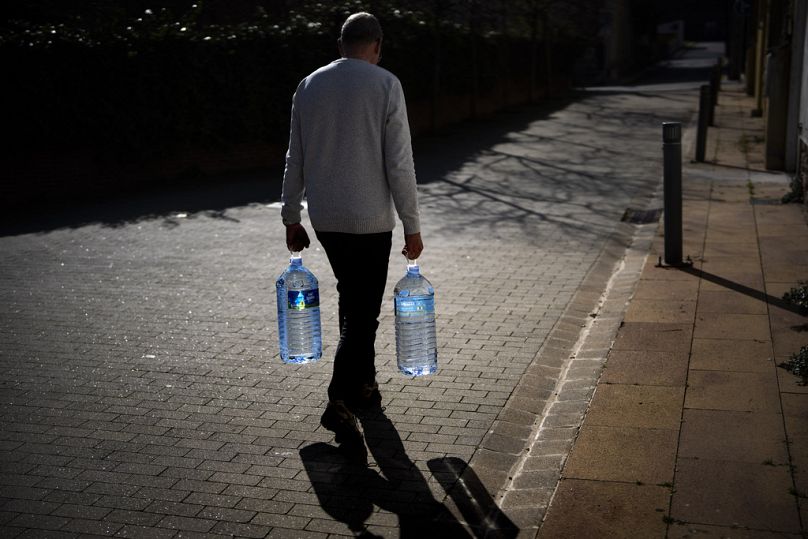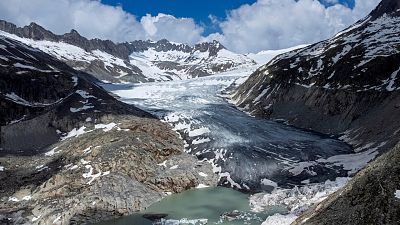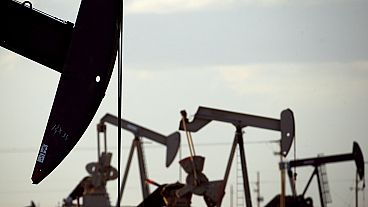Local authorities say it is a more economical and environmentally sustainable solution than shipping in water.
Spain’s drought-stricken region of Catalonia will install a floating desalination plant to help the city of Barcelona guarantee its drinking water supply, regional authorities said Thursday.
Barcelona already relies on Europe’s largest desalination plant for domestic use to compensate over three years of below average rainfall that have led to a historic drought made worse by climate change. In February, Catalonia's regional government declared a drought emergency for much of the surrounding region.
Now Spain’s second-largest city will get a temporary second desalination plant in its port later this year.
Authorities say it will mean than shipping in water, one of the alternatives considered to boost Barcelona's supplies, doesn't have to happen.
David Mascort, who heads the regional environmental authority, told a news conference that the floating plant was a "more economical and environmentally sustainable solution" which will provide greater "security of supply".
"The amount of water we will obtain is much greater than that which we would obtain with boats, and it is also much cheaper," he added.
Ships could bring in an average of 25,000 square metres of water per day while the floating desalination plant produced 40,000 square metres.
How much water will the desalination plant provide?
Mascort said the plant is scheduled to start working in October. It will produce the equivalent of 6 per cent of the city's consumption, compared to almost a quarter of the city's water now produced by Barcelona’s permanent desalination plant.
Barcelona uses desalination and water purification systems to meet its water needs. The reservoirs that serve 6 million people in central and northern Catalonia, including Barcelona, are at 18 per cent of their capacity.
Despite some relief from spring rains, Catalonia has kept in place restrictions under a water emergency declared in February. Those limitations include a daily limit of 200 litres per person for domestic use, and reductions in average water use by 80 per cent for crop irrigation, 50 per cent for herd animals and 25 per cent for industry.
Mascort said the additional drinking water should help avoid - or at least push back the need for tighter water restrictions in the fall.




